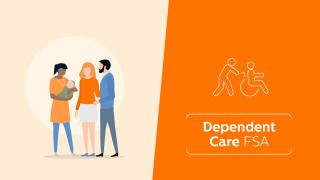FLEXIBLE SPENDING ACCOUNT
Resources
The Flexible Spending Account (FSA) plan allows you to set aside pre-tax dollars to cover qualified expenses you would normally pay out of your pocket with post-tax dollars. The plan is comprised of a health care spending account and a dependent care account. You pay no federal or state income taxes on the money you place in an FSA.
Please plan your FSA contributions carefully, as any funds not used by the end of the year will be forfeited. Re-enrollment is required each year.
How an FSA works:
- Choose a specific amount of money to contribute each pay period, pre-tax, to one or both accounts during the year.
- The amount is automatically deducted from your pay at the same level each pay period.
- As you incur eligible expenses, you may use your flexible spending debit card to pay at the point of service OR submit the appropriate paperwork to be reimbursed by the plan.
Important rules to keep in mind:
- The IRS has a strict “use it or lose it” rule. If you do not use the full amount in your FSA, you will lose any remaining funds.
- Once you enroll in the FSA, you cannot change your contribution amount during the year unless you experience a qualifying life event.
- You cannot transfer funds from one FSA to another.
Healthcare FSA
Don’t lose the chance to put up to $800 back into your pocket this year!
Participating in a healthcare flexible spending account is like receiving a 30% discount from your medical providers.
How does it work?
A healthcare FSA is a flexible spending account that allows you to set aside pre-tax dollars for eligible medical, dental and vision expenses for you and your dependents, even if they are not covered under your primary health plan.
You choose an annual election amount up to $3,200. At the beginning of the plan year, your account is pre-funded and your full contribution is immediately available for use. Your election amount is then deducted from your paychecks in equal installments throughout the year.
Why should I enroll in a healthcare FSA?
Almost everyone has some level of predictable and non-reimbursable medical needs.
If you expect to incur medical expenses that won’t be reimbursed by another plan, you’ll want to take advantage of the savings this plan offers. Money contributed to a healthcare FSA is free from federal and state taxes and remains tax-free when it is spent on eligible expenses. On average, participants enjoy a 30% tax savings on their annual contributions. This mean you could be saving up to $800 per year on healthcare expenses!
Qualifying Expenses
What qualifies?
Healthcare FSA funds can cover costs for:
- Copays, deductible payment, coinsurance
- Doctor office visits, exams, lab work, x-rays
- Hospital charges
- Prescription drugs
- Dental exam, x-rays, fillings, crowns, orthodontia
- Vision exams, frames, contact lenses, contact lens solution, laser vision correction
- Physical therapy
- Chiropractic care
- Medical supplies and first aid kits
- Over-the-counter medications
- And much more…
What doesn’t qualify?
Certain expenses are not eligible for instance:
- Expenses incurred in a prior plan year
- Cosmetic procedures or surgery
- Dental products for general health
- Hygiene products
- Insurance premiums
- Late payment feeds charged by healthcare providers
Dependent Care FSA
Don’t lose the chance to put up to $1,500 back into your pocket this year!
Participating in a dependent care flexible spending account is like receiving a 30% discount from your care provider.
How does it work?
A dependent care FSA is a flexible spending account that allows you to set aside pre-tax dollars for dependent care expenses, such as daycare, that allow you to work or look for work.
You choose an annual election amount, up to $5,000 per family. The money is place in your account via payroll deduction, in equal installments, and then used to pay for eligible dependent care expenses incurred during the plan year.
Why should I enroll in a dependent care FSA?
Child and dependent care is a large expense for many families. Millions of people rely on child care to be able to work, while others are responsible for older parents or disabled family members.
If you pay for care of dependents in order to work, you’ll want to take advantage of the savings this plan offers. Money contributed to a dependent care account is free from federal and state taxes and remains tax-free when it is spent on eligible expenses. On average, participants enjoy a 30% tax savings on their annual contribution. This mean you could be saving up to $1,500 per year on dependent care expenses!
Qualifying Expenses
What qualifies?
Depenedent care FSA funds can cover costs for:
- Before school or after school care for children 12 and younger
- Custodial care for dependent adults
- Licensed day care centers
- Nanny / Au Pair
- Nursery schools or preschools
- Late pick-up fees
- Summer or holiday day camps
What doesn’t qualify?
Certain expenses are not eligible for instance:
- Expenses incurred in a prior plan year
- Expenses for non-disabled children 13 and older
- Educational expenses including kindergarten or private school tuition fees
- Food, clothing, sports lessons, field trips, and entertainment
- Overnight camp expenses
- Late payment fees for child care




